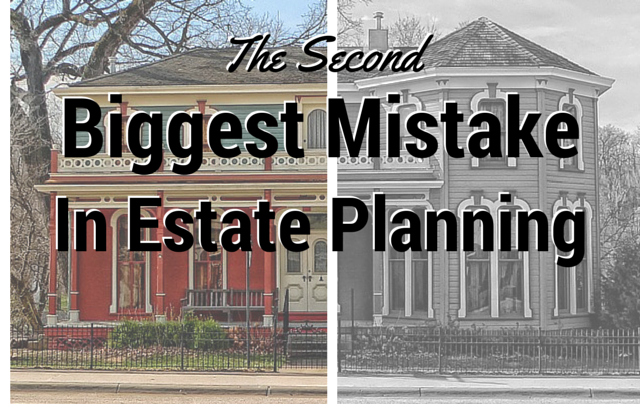Recently, a client came to me with an unfortunate situation—his mother had died, leaving him her house. Although the house had been appraised at $350,000 when he inherited it, at sale two years later the house only brought $300,000. This was bad enough, but at least he got a $50,000 tax loss on the sale, right? Wrong—he actually had a taxable gain of $100,000, resulting in a potential tax bill of around $35,000. Why? Because his mother, trying to save on probate costs, had made a common mistake: instead of leaving the property to her son in her Will, she had “put his name on the deed” to her house during her lifetime.
There are a number of reasons why this is a very bad idea.
First of all, there is no such thing as merely “putting a name” on your deed. What Mom did in my client’s case was gift her son half of her house. This means that Sonny could have forced a sale of the house to get his share. Now, I am sure if I had spoken to Mom five years ago when she did this, she would have protested that Sonny would NEVER have tried to do this; and ultimately she was correct. But what about Sonny’s creditors? If he had been successfully sued, his creditors could have attached his share of mom’s house. The creditors may include the IRS, the State of Maryland or an ex-wife.
Now, none of these terrible things did happen, but there is still the matter of the tax bill on what should have been a tax loss. What’s up with that? When you inherit property, you get it at what is known as a “stepped up basis.” Simply stated, if a house was worth $350,000 on the date of Mom’s death, Sonny would have inherited the house with a tax basis of $350,000. Upon selling the house for $300,000, Sonny would have had a tax loss.
Instead, Sonny got the property on a “carryover basis” on the share of the house he received as a gift back in 2004. A carryover basis is the basis that the original owner had, which in this case is 50% of the amount that Mom originally paid for the house ($50,000 back in 1971). I know that this is getting complicated, but hang in there!
So, Sonny’s basis is calculated as follows:
- On the ½ of the house that Sonny received as a gift from mom, his basis was ½ of Mom’s original cost basis of $50,000, or $25,000.
- On the ½ of the house Sonny inherited upon the death of Mom, his basis was ½ of the date of death value of $350,000, or $175,000.
- Sonny’s total basis was $25,000 + $175,000 =$200,000. His gain upon the sale of house at $300,000 was therefore $100,000. Estimated tax bill $35,000.
Probate costs, had he handled the probate himself, (which would have been easy, since this was Mom’s only asset) would have been more like $2,000. Even if he had hired an attorney to handle the probate, the total costs would have been less than half the tax bill. The sad part is that, had Mom contacted an experienced estate planning attorney in Maryland, she could have been advised as to a number of estate planning methods that would have avoided probate at a mere fraction of the final tax bill.
Lesson Learned: Estate planning is not a DIY project!
By the way, if this is the second biggest mistake in estate planning, what is the first? The one that over 50% of Americans make: not doing anything.


